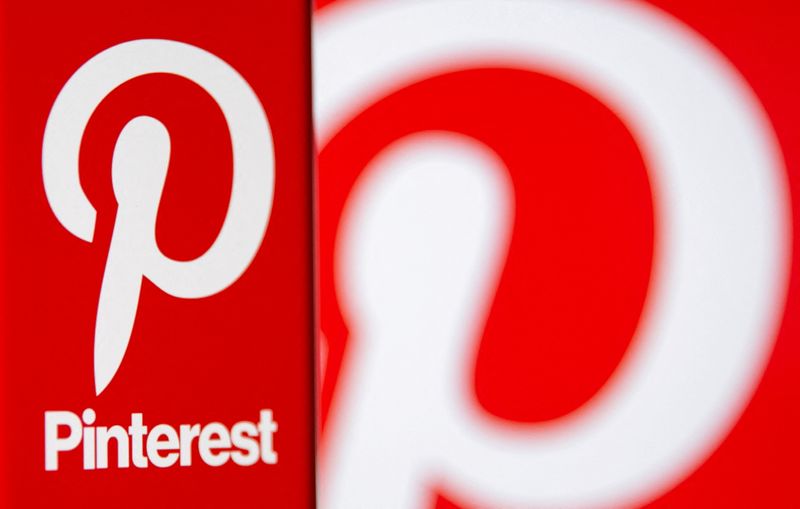(Reuters) – For years, investors have wondered about the long-term prospects for Snap Inc and Pinterest Inc, smaller digital ad players which have had to pick up the ad dollar scraps left over from giant tech rivals.
This week, David triumphed over Goliath as Snap and Pinterest reported financial results that demonstrated how their smaller size, different advertiser base and relatively newer ad operations have helped them avoid the brunt of blows from Apple Inc’s decision to require apps to ask iOS users for permission to collect certain data.
On Thursday, Facebook owner Meta Platforms Inc had more than $200 billion knocked off its market cap a day after it blamed Apple’s changes for hurting fourth quarter results. While shares of Snap and Pinterest were initially dragged down by Meta’s report, their shares skyrocketed 55% and 20%, respectively, late on Thursday after they showed ad revenue strength.
Apple’s privacy updates, called App Tracking Transparency, began rolling out to its iOS devices in April and gave users the option to block apps from tracking activity across apps and websites owned by other companies.
Snap said that by the end of the fourth quarter, many of its advertisers had adopted a tool provided by Apple to measure the effectiveness of ads, and had grown more comfortable using the tool. Advertisers representing 75% of revenue in its business that is geared toward driving sales or other customer actions from ads, had adopted a separate product created by Snap to measure the results of their ads.
That helped Snap’s ad business recover from the Apple changes “quicker than we anticipated,” said Snap Chief Financial Officer Derek Andersen during a call with analysts on Thursday.
The company, which owns photo messaging app Snapchat, began working more than a year ago to figure out how to target ads to users “in a privacy-safe way,” which helped Snap make progress before the Apple data-tracking changes upended the market, Andersen said.
Snap was also likely helped by the fact that the majority of its advertisers are large brands with marketing resources that allow them to quickly adapt to industry changes, while Meta’s advertisers are predominantly small to medium-sized businesses that were not as quick to adjust to these changes, said LightShed Partners analyst Rich Greenfield, in a CNBC interview on Thursday.
When Twitter Inc reports next Thursday, the company is expected to underscore the trend that has propelled Snap’s results against the seismic changes from Apple. Analysts expect the social networking site to be somewhat insulated from Apple because it is primarily used by advertisers to reach audiences around live and current events, and has been less reliant on the Apple device identifiers for advertisers.
In April, Twitter said its integration with Apple’s ad measurement tool called SKAdNetwork, actually led to a 30% increase in Apple devices that Twitter could target ads to.
Digital pinboard company Pinterest said it was investing in video features and creator-led content to boost engagement and ad revenue.
Pinterest’s Chief Financial Officer Todd Morgenfeld said in an interview with Bloomberg that the company has not seen a material impact from Apple’s changes, but that it could in the future.
(Reporting by Sheila Dang in Dallas; editing by Kenneth Li and Bernard Orr)



























